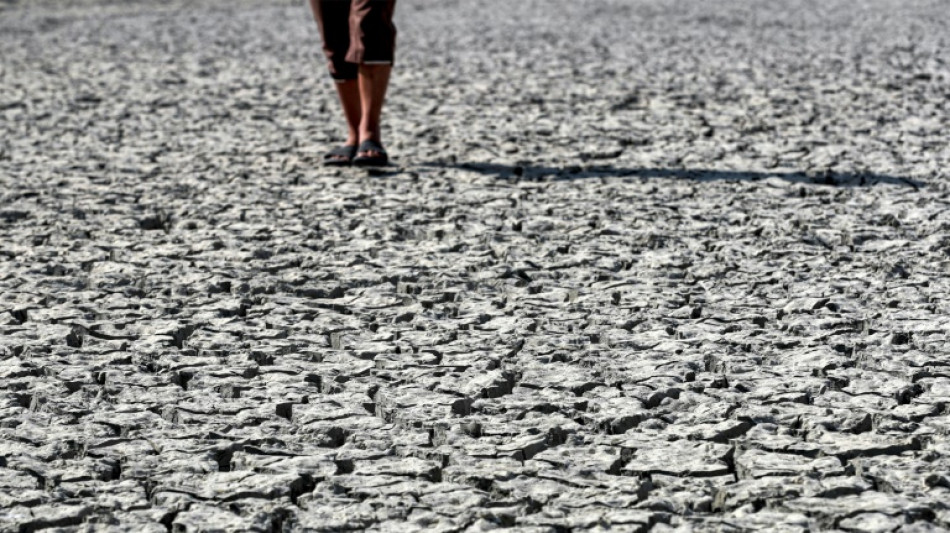
-
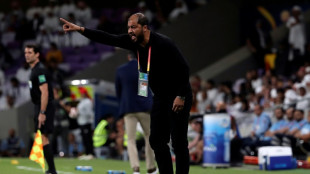 Coach Chaabani wishes Berkane were not CAF Cup final favourites
Coach Chaabani wishes Berkane were not CAF Cup final favourites
-
Eurovision in numbers

-
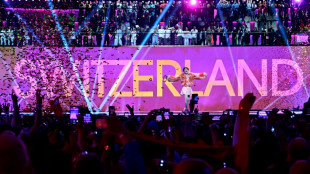 Eurovision comes full circle, showing changing times
Eurovision comes full circle, showing changing times
-
Salman Rushdie attacker faces sentencing
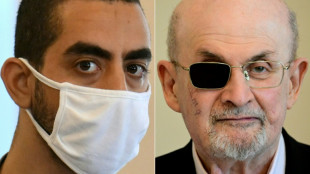
-
 Influencer's murder shows dark side of Mexican social media fame
Influencer's murder shows dark side of Mexican social media fame
-
Russia and Ukraine to meet in Istanbul, but expectations low
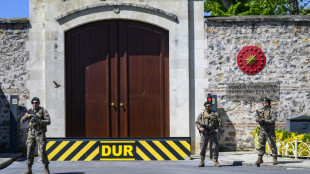
-
 'He's killing us': Cannes dealmakers hate Trump's big Hollywood idea
'He's killing us': Cannes dealmakers hate Trump's big Hollywood idea
-
Last Champions League place, relegation to be decided in Ligue 1 finale

-
 De Bruyne seeks fitting Man City farewell in FA Cup final
De Bruyne seeks fitting Man City farewell in FA Cup final
-
Crystal Palace go for glory as Man City seek salvation in FA Cup final

-
 Napoli's first match point as Scudetto race reaches climax
Napoli's first match point as Scudetto race reaches climax
-
Dortmund hope to take 'final step' in unlikely top-four rescue act

-
 Raisuqe death to 'motivate' Castres in Top 14 season run-in
Raisuqe death to 'motivate' Castres in Top 14 season run-in
-
Eurovision favourite KAJ shines spotlight on Finland's Swedish- speaking minority

-
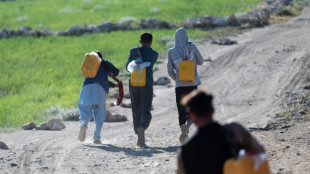 'Serious problem': Afghan capital losing race against water shortages
'Serious problem': Afghan capital losing race against water shortages
-
Jokic, Strawther star as Nuggets down Thunder to tie series

-
 Buttler to leave extended IPL early for England duty
Buttler to leave extended IPL early for England duty
-
Asian markets stagger into weekend as trade rally runs out of legs

-
 US singer Chris Brown charged with assault in Britain
US singer Chris Brown charged with assault in Britain
-
YouTube star MrBeast upsets Mexican officials with temple videos

-
 Take-Two earnings boost delayed along with 'GTA VI'
Take-Two earnings boost delayed along with 'GTA VI'
-
Independence hero assassin's calligraphy breaking auction records in Seoul
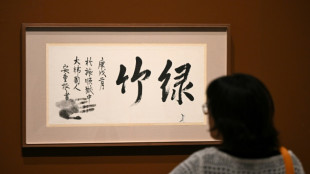
-
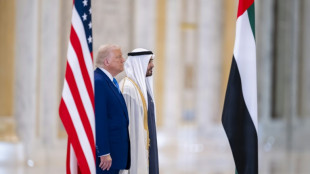 Trump caps Gulf tour in Abu Dhabi with dizzying investment pledges
Trump caps Gulf tour in Abu Dhabi with dizzying investment pledges
-
Iran, European powers to hold nuclear talks in Turkey
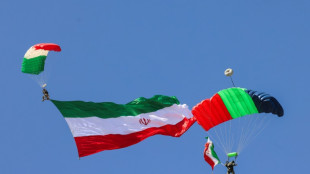
-
 Opposition leader vows 'empty' polling stations for Venezuelan legislative vote
Opposition leader vows 'empty' polling stations for Venezuelan legislative vote
-
Venezuelan Vegas birdies five of last six to grab PGA lead
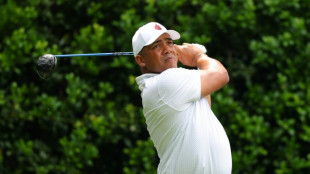
-
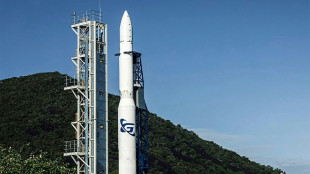 Nose cone glitch wipes Australian rocket launch
Nose cone glitch wipes Australian rocket launch
-
Curry 'excited' by Warriors future despite playoff exit

-
 Formation Metals Advances 2025 Drilling Program with ATI Application for N2 Property
Formation Metals Advances 2025 Drilling Program with ATI Application for N2 Property
-
US cops investigating Smokey Robinson after sex assault lawsuit

-
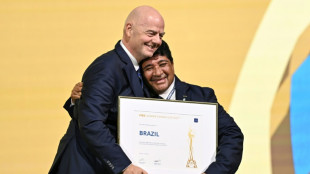 Fresh woes for Brazil football as federation boss dismissed
Fresh woes for Brazil football as federation boss dismissed
-
'Unique' Barca family key to title triumph: Flick

-
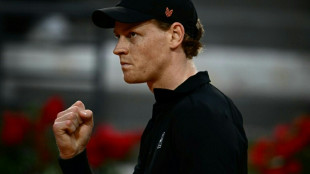 Sinner demolishes Ruud as Gauff battles into Italian Open final
Sinner demolishes Ruud as Gauff battles into Italian Open final
-
Aussie Davis, American Gerard share PGA Championship lead

-
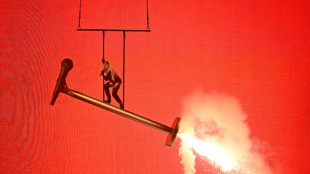 Austrian opera, Finnish lust through to Eurovision final
Austrian opera, Finnish lust through to Eurovision final
-
Combs's ex Cassie faces intense defense questioning

-
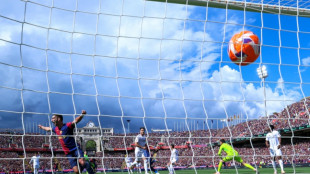 How Flick's Barca wrestled La Liga back from Real Madrid
How Flick's Barca wrestled La Liga back from Real Madrid
-
Kiwi Fox, local hero Smalley make most of late PGA calls

-
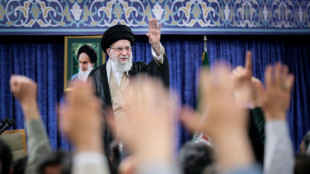 Oil prices fall on hopes for Iran nuclear deal
Oil prices fall on hopes for Iran nuclear deal
-
European walkout after late Infantino delays FIFA Congress
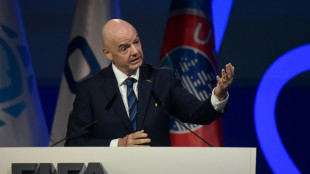
-
 Eurovision: the grand final line-up
Eurovision: the grand final line-up
-
Yamal pearl seals Barcelona La Liga title triumph at Espanyol

-
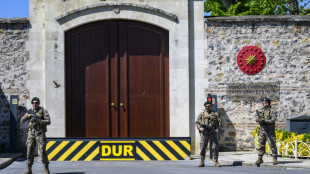 Rubio has no high expectations for Ukraine-Russia talks
Rubio has no high expectations for Ukraine-Russia talks
-
Milkshakes, opera and lust as Eurovision semi votes counted

-
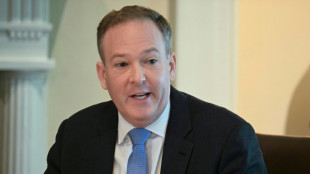 Trump admin leaves door open for tougher PFAS drinking water standards
Trump admin leaves door open for tougher PFAS drinking water standards
-
No.1 Scheffler, No.3 Schauffele blast PGA over "mud balls"

-
 Eric Trump says father's energy policies will help crypto
Eric Trump says father's energy policies will help crypto
-
US rests case in landmark Meta antitrust trial
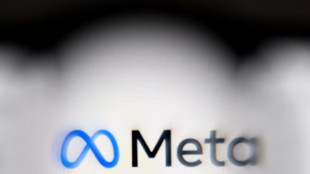
-
 Alba inks Inter Miami extension to 2027
Alba inks Inter Miami extension to 2027
-
Real Madrid's Asencio wants 'presumption of innocence' in underage sex video case


Water-stressed Iraq dries up fish farms
Iraqi villager Omar Ziad gazes at the cracked and barren earth where his fish farm once stood, lost to water conservation efforts during a devastating four-year drought.
As the alarming water crisis blamed mostly on climate change drags on, officials see the need for trade-offs in an effort to meet the country's demands.
Drastic government measures have restricted water use for some purposes, including crop irrigation, and authorities have cracked down on illegal practices they long ignored.
Since late May, unauthorised fish farms like Ziad's have become a target.
"I've worked in this industry since 2003," the 33-year-old said at his village of Al-Bu Mustafa in Iraq's central Babylon province.
He had watched helplessly as officials from the water resources ministry sealed his family's seven fish ponds.
Surrounded by fields and majestic palm trees, this was where Ziad, his father and seven brothers would rear carp, which Iraqis use to make their beloved grilled fish dish known as masguf.
At full capacity, the farm held about 50,000 fish and earned the family the equivalent of $1,300-2,600 a month, far more than many in the country.
"We would share the revenues", said Ziad, who also works as a teacher.
He added that they sold their fish "cheaply", but since all but five of the village's 80 fish ponds shut down, the price of carp has almost doubled, now selling at more than 8,000 dinars (around $6) per kilogram, he said.
- 'Strategic reserves' -
From a bird's-eye view, the backfilled dry patches of land that replaced the ponds are marked out by unpaved roads.
The monotony of the barren landscape is occasionally interrupted by ponds that still hold water. These were spared because their owners had the necessary permits, according to Ziad.
Water supply in Iraq, which the United Nations ranks as one of the five countries most impacted by some effects of climate change, is in a dire state.
Declining rain over the past four years coupled with rising temperatures has brought water levels in the Tigris and Euphrates rivers to staggering lows, for which Baghdad also accuses upstream dams built by neighbouring Turkey and Iran.
"The strategic water reserves in Iraq are at their lowest point" in nearly a century, said Khaled Shamal, spokesman for the water resources ministry.
Some of Iraq's 43 million inhabitants share the blame, he told AFP, due to water-intensive "irrigation practices".
Shamal justified the crackdown on unauthorised fish farms by saying the ponds "increase the water surface susceptible to evaporation", provoke seepage into the soil, and contribute to "environmental pollution".
About half of Iraq's estimated 5,000 "unlicensed" fish farms have been closed, Shamal said, pointing out that authorities still allow mobile fish tanks which are submerged in rivers.
- Plunging output -
Ayad al-Talibi, president of the Iraqi association of fish farmers, said he accepted the shutting of unauthorised ponds but questioned whether the water that has been saved was "properly used".
Before the May crackdown, Iraq produced nearly one million tonnes of fish per year, but Talibi told public broadcaster Al-Ikhbariya that output has now plunged to 190,000 tonnes.
According to him, the sector employs two million Iraqis. "All of these families will migrate to the cities" which might struggle to accommodate them, he predicted.
The water crisis has also affected river fishing.
In Iraq's far south, high salinity has harmed fishing in the Shatt al-Arab waterway, where the Tigris and Euphrates converge before spilling into the Gulf.
As the flow of fresh water from the north decreases every year, the riverbed gradually fills with salt water.
Sailing the waters of Shatt al-Arab, fisherman Khdeir Aboud, 71, casts his net but expects no major catch.
Fresh water would once carry "all types of fish" but "with the salt water, there's nothing left", said the white-bearded man.
The meagre pay he now makes "can't support a household", he lamented.
"Most fishermen have quit the trade for odd jobs. There are only a few old people left."
Y.Kobayashi--AMWN